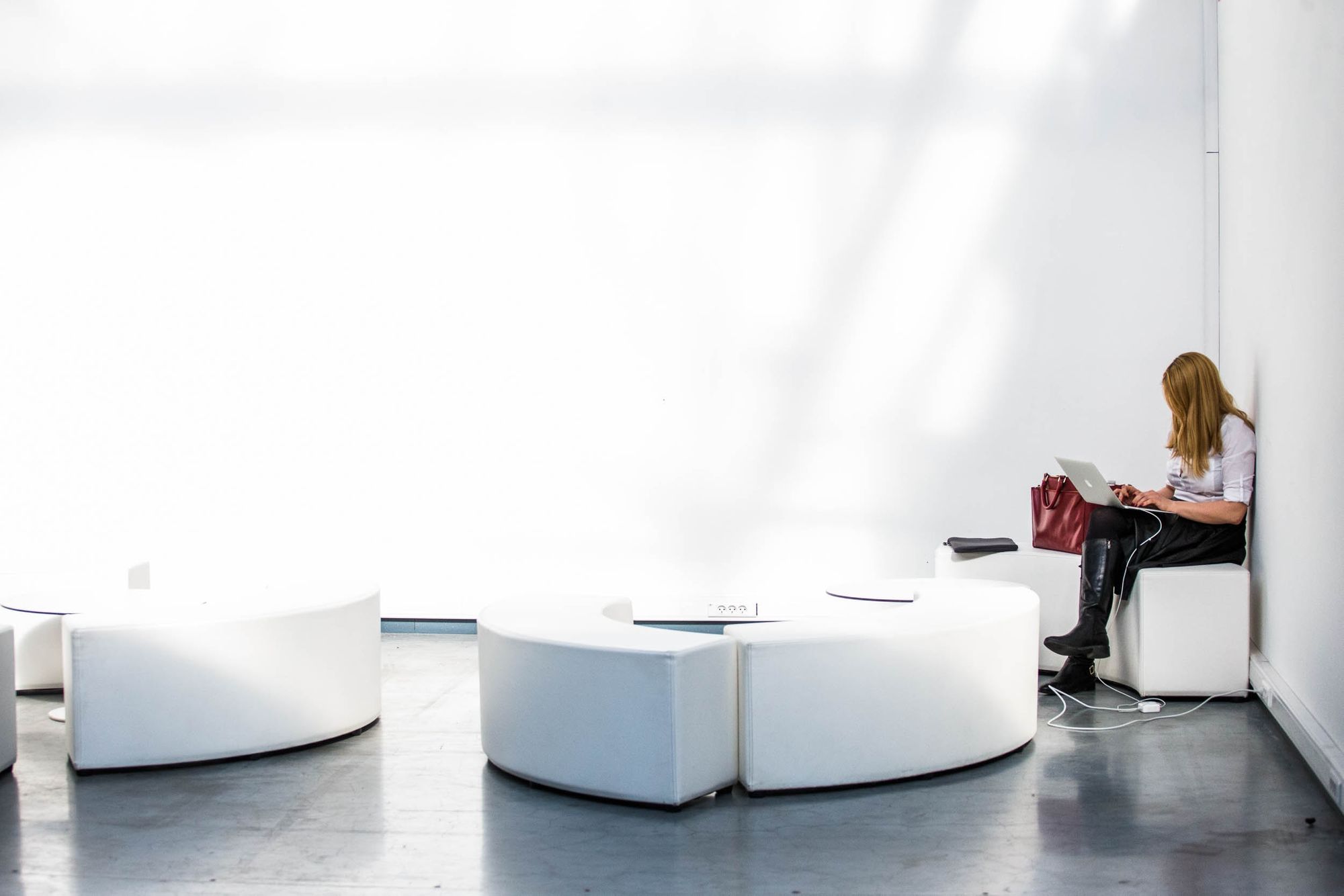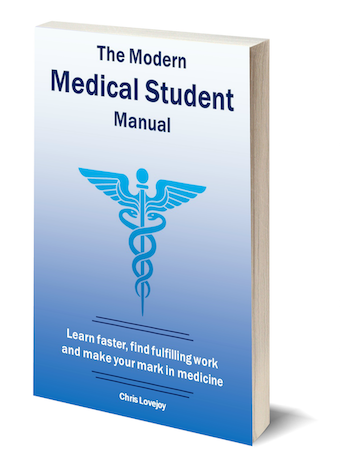Increasing Your Impact (and the power of Self-Education) (Part 2)
See Part 1 here.
Self-Education: the 21st Century Super-Power
Self-education enables us to develop the understanding required for insight into our enjoyment of a particular area. Recent technological advances, such as the internet and mobile devices, now provide unprecedented potential for high-level self-education.
Once you start to yield the rewards of doing so, it is like continuing down a metaphorical rabbit hole. After learning about one area, it will open up new areas and possibilities and each time you can select the next route based on your personal inclinations. The deeper you go, the greater the depths of interest you develop and the more ‘passion’ you can find.
The first step is to identify what your potential areas of interest are. This can take any form; a subject area, a skill, an artform. Don’t limit yourself to something that must be obviously related to medicine. You must then actively work to develop expertise in the area. At a fundamental level, an approach for doing so is to:
- Identify good sources of input and methods of output.
- Incorporate them into daily life.
Identifying sources of input and methods of output
The three main domains by which we can learn are by auditory input, visual input and by output (thinking, making and doing).
The ratio of different types of input and output depends on the area that you select. For example, if, as Mandeep, you want to learn to rap, then output is of utmost importance but you would also want to spend time listening to other rappers (auditory input). Reading (visual input) would be of less importance. If you wanted to learn academic content, the ratio may be more evenly spread.
You can also match the ratios to your personal preferences. I learn much better from auditory input so will prioritise an audiobook over visual reading where possible. Most commonly, a balance of different types is the best approach.
Auditory input includes audiobooks, YouTube videos and podcasts. Great sources of audiobooks include Audible (paid), LibroVox and Project Gutenberg (both free). I’ve heard there may even be pirate-themed websites where you can download audiobooks that other people have shared (though only if there is no copyright, so it is useful for old books). There is software that enables you to download YouTube videos (for personal use only) and one source of great podcasts is the TuneIn Radio app.
Visual input includes reading books and blogs. UsedBookSearch.co.uk is a great website for finding cheap second-hand books (often as cheap as £0.01 + £2.80 delivery). While buying lots of books may seem expensive, I would argue that a good book can change the way you see the world so may be the most cost-effective investment you can make. There are a huge number of blogs out there so try to find the best ones to suit your purpose.
Output is an essential stage in all learning. It may involve writing about something you’re learning; manipulating information that you have come across or forming your own opinions can highlight gaps in your knowledge and consolidate ideas. It may involve teaching others. It helps avoid the trap of thinking that because you have read X number of books on a subject, you are automatically an expert. You must also grapple with the content to ensure you understand the ideas. Alternatively, it may involve practising the skill, such as writing raps in the case of Mandeep.
Think about your area of interest and what type of output can help you to master it. Are you learning lots of complex ideas? If so, how could you consolidate them. Are you developing a skill? If so, how could you practise it. For example, you could write a blog, start a podcast or start a project – it is specific to your area, so you can be creative.
Incorporating them into daily life
Our day provides a plethora of opportunities for different forms of information input or output. There will be gaps in your day when you could read something. There will be activities that you do regularly, during which you could listen to something. There will be certain times of day optimum for creating something.
Go through your typical day or week from beginning to end and see where you could incorporate learning. For example, at times I was commuting 30 mins to medical placement and back so I listened to audiobooks. In the mornings, my mind often wanders while I eat breakfast so I started recalling information or brainstorming ideas while I ate.
I would recommend developing these new habits gradually, as taking on new tasks can be cognitively straining. But your brain will adapt and they will become easier with time, until you no longer have to think about it.
It’s useful to set targets and deadlines. For example, I often do one-month projects where I do something, such as writing a blog post or reading a book, every day. I also set the personal target of reading 100 books every year.
However, it’s easy to set over-ambitious targets. Therefore, it’s important to objectively assess your past track-record and set gradually increasing targets. Smart small, until it’s comfortable, then increase.
After maintaining this approach for a period of time, you will hit a point of positive feedback. You will start to see tangible rewards for your efforts, which feeds back as further motivation for learning. For example, after investing time and effort into blogging, I started to get positive feedback and build up an audience – this excitement gave me the motivation to wake up early and write blog posts before starting work. At some point, you will hit a point of no return where you are fully committed to finding passionate work and you won’t want to go back to your previous lifestyle.
For more information about this system, as well as how to transition up and down a “hierarchy” of inputs and outputs based on your circumstance, check out this article.
The benefits of self-education
The gains from this approach extend well beyond the content that you learn. It increases your ability to retain further information and to come up with new ideas.
The Velcro Theory of Memory compares retaining information to Velcro; the more ‘hooks’ (previously understood concepts) you have for the loops (new information) to hold onto, the more likely it is to stick.
James Altucher is a best-selling author and entrepreneur who advises people to, each day, read for at least an hour and to write out ten new ideas. He says that the more ideas you have in your head, the better the ideas you will produce. He describes this phenomenon as ‘idea sex’; the ideas in your head will combine and, akin to sexual reproduction, will produce offspring ideas which can be even better.
We are entering an era with an unprecedented rate of change. The rate of technological advancement is increasing exponentially. The future belongs to those who are the most adaptable and the ability to extensively self-educate will be an increasingly important skill.
The field of medicine is slow to adapt to these changes and embrace new possibilities. It is for this reason that I started the Future Doctors, which is a network of ambitious doctors determined to make a difference to medicine and to the world. Through sharing advice, experiences and resources we want to help each other make an impact.
Developing fundamental transferrable skills
Self-education, as described in this chapter, can be applied to medicine or any other field. There are other ways, for which opportunities exist at medical school, to develop skills which will maximise the impact you have and your ability to find an area you love.
The ability to think well and communicate well, both orally and through writing, are fundamental transferrable skills. They can help in many areas of life as a doctor and beyond. Developing these abilities can be enjoyable in their own right. In Chapter 5, I will explore how scientific research can be used to increase your ability to think well. In Chapter 6, I will explore how writing and teaching can increase your ability to communicate well and outline the opportunities for doing so at medical school.
MEDICAL STUDENT CHALLENGE 1: Self-educate in a topic that interests you. Set a goal to work towards and a deadline for achieving it. Example goals: Write a 4,000 word essay, read 10 books on the subject, publish an original research article in the area.
CHAPTER 4 SUMMARY
- The competency of a doctor is primarily determined by how well they can follow medical algorithms.
- We can only treat the patients we meet. This limits the positive impact that improving our clinical practice can have.
- We can enhance our impact by making progress in an area of medicine that can scale up.
- The best way to do so is to find something we love and incorporate it into improving medicine.
- To maximise our chance of finding something we love and making an impact, we can self-educate and develop fundamental transferrable skills.
- Self-education involves selecting an area, identifying good sources of information and incorporating learning into your daily life.
- The world is changing faster than ever so learning to be adaptable is invaluable.
Continued in Chapter 5.
This is a chapter from The Modern Medical Student Manual. A full list of chapters are below:
- Introduction: From That Day To This Book
- Chapter 1: Medicine from Fifty Thousand Feet: Perspective, Targets and Limits
- Chapter 2: The Fundamentals of Fast Learning - Part 1 and Part 2
- Chapter 3: Mastering Clinical Medicine - Part 1 and Part 2
- Chapter 4: Increasing our Impact (and the power of Self-Education) - Part 1 and Part 2
- Chapter 5: A Scientific Approach to Research - Part 1 and Part 2
- Chapter 6: Commanding Clearer Communication - Part 1 and Part 2
- Conclusion
Plus Bonus Chapters:
- Bonus Chapter 1: If Medicine Gets You Down
- Bonus Chapter 2: Is Medicine Right For Me?
- Bonus Chapter 3: Memorisation Techniques (by Dr James Hartley)
- Bonus Chapter 4: Learning from Others in Medicine


Comments powered by Disqus.